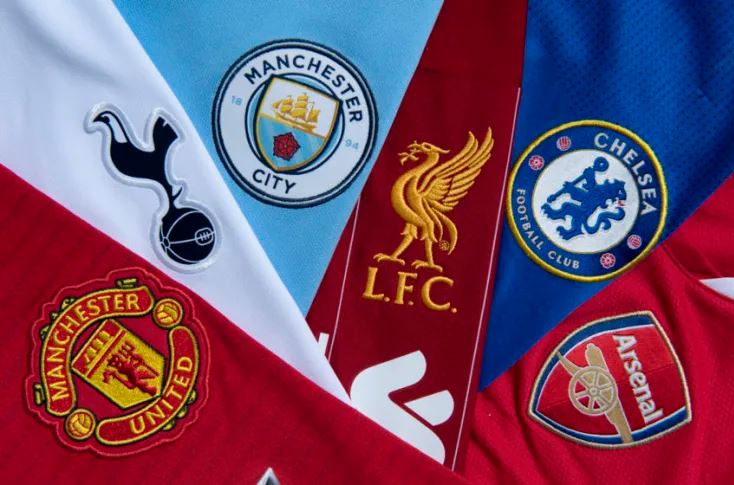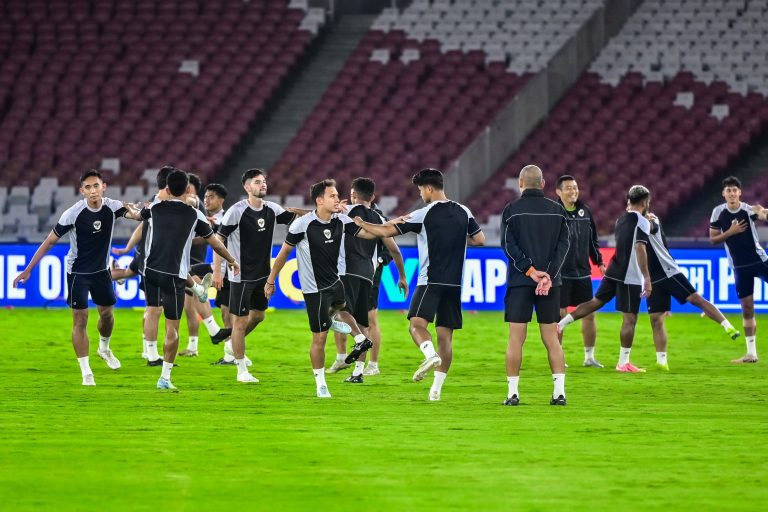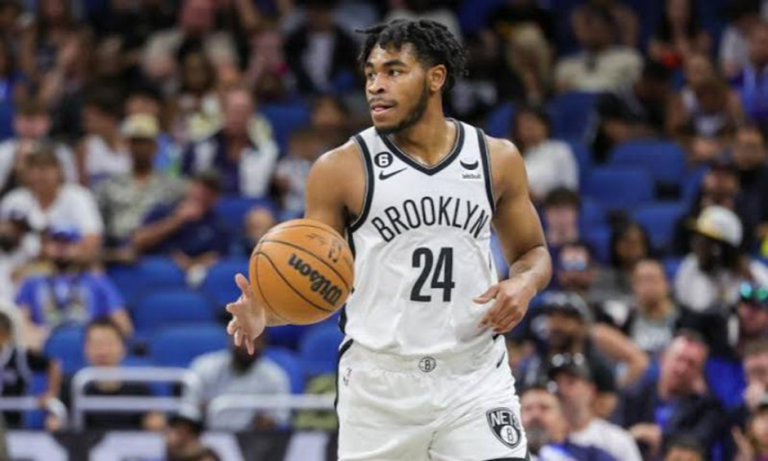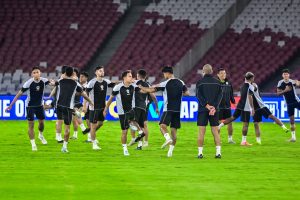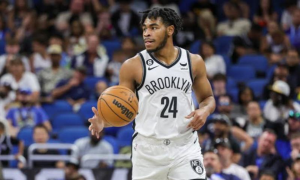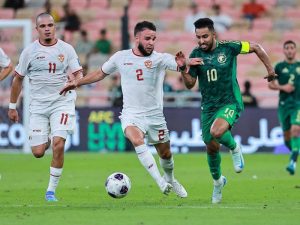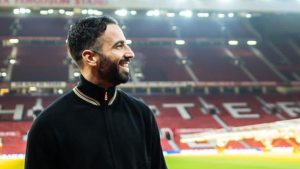During the European Super League tussle in the last few days, Jamie Carragher worked as usual as a Sky Sports pandit. He, along with Garry Neville, used their time appearing on the screen to criticize the discourse of the splinter competition. “We are suing about the separation of [European Super League] here. But let’s not forget that Sky Sports and the Premier League were involved in a split in 1992, and it was between the Big Five back then, “said Jamie Carragher during a Sky Sports live broadcast.
The Liverpool legend tries to answer comparisons about the formation of the Premier League and Super League. In the beginning, the EPL was indeed a splinter competition and was only formed in 1992.
“So, we criticize it [Super League] but we work at a company that is involved in separating [the Premier League]. So are we hypocrites, are we wrong? ” he continued. Long before the Super League was announced, England had a football conflict that resulted in the division of the league. The root of the conflict is also not far from the cause of the current Super League ontrans, namely the struggle for money and power.
In the 1980s, the big clubs of the First Division (England’s top division before the Premier League) were not satisfied with the way the English Football League managed the competition. This discontent was vocally voiced by the five biggest clubs, The Big Five at that time: Manchester United, Liverpool, Arsenal, Everton, and Tottenham Hotspur. These clubs want a larger share of broadcast rights revenue.
The root of the clubs’ dissatisfaction is not only about broadcasting rights money. By the 1990s English football was in dire straits. Hooliganism mushroomed and the league’s appeal waned. Two major tragedies aggravated the situation of British football. The Heysel tragedy that killed 39 people in 1985 saw British clubs banned from participating in continental tournaments for five years. Four years after Heysel, the Hillsborough tragedy that claimed the lives of up to 96 people occurred.
The Hillsborough tragedy brought massive changes to English football. After the investigation was carried out, British football stadiums were prohibited from installing standing stands. The club also had to renovate the stadium stands to become fully seated. The weakening attractiveness of the league also makes it difficult for big clubs to compete, either financially or meritly, with teams of Germany, Spain, Italy and France.
In the 1980s, clubs threatened to leave the EFL. This forced the league manager to give in. EFL then changed the distribution of broadcast rights to 50% for First Division clubs, while the rest was divided into three divisions under it. Previously, the distribution of income from broadcasting rights tended to be more evenly distributed. In 1965, broadcast fees from the BBC for the program “Match of the Day” were distributed equally among the 92 member clubs.
The desire to leave EFL almost materialized in 1988. The Big Five received support from five other clubs, namely West Ham, Nottingham Forest, Aston Villa, Sheffield Wednesday and Newcastle United. The desire to create a splinter league is supported by ITV, which offers 32 million pounds for broadcasting rights.
However, this plan failed in the end. The reason is, the British High Court’s decision defended the EFL and prohibited a group of clubs from discussing exclusive deals with television. Dissidents began to see a bright spot in the 1990s. They are looking for support from the FA, the PSSI of England. The FA released the Blueprint for the Future of Football, which supports the formation of the Premier League.
The official reason for the FA’s support is in the interests of the national team. Under the proposal, the new league will accommodate fewer clubs. The FA believes that the fewer matches the national team’s fitness ahead of major tournaments such as the European Cup and the World Cup will be better. However, some people think that FA support is political. The FA was accused of supporting the formation of new competitions to reduce the influence of the EFL. These two institutions are involved in the rivalry as British football authorities.
“I really don’t believe that this [the formation of the Premier League] is for the better England national team. I think it’s based on greed alone, “said Graham Taylor, England coach at the formation of the Premier League. Taylor is not the only one against the new competition. The EFL, as the hardest hit, clearly disagrees. Premier League clubs are accused of only wanting to widen inequality by drinking broadcast rights money alone.
Towards the Premier League era, revenue from broadcasting rights showed a tantalizing increase. In 1986, a two-year broadcast deal was valued at 6.3 million pounds. But in 1988, the figure jumped to 44 million pounds for four years. “We want to be rewarded fairly for what we have contributed to this game. The relationship of [player’s] salaries with how much the club earns is not relative. There will be more money in the game
“This thing, so I think it [Premier League] doesn’t hurt,” said Tony Cottee, a former Everton player. The Premier League was finally approved and the first rolled in 1992/93. Sky became the main broadcast rights holder with a bid of 304 million pounds for five years, 60 games per season. The money is managed and enjoyed by 22 participating clubs. Since 1995, the participating clubs have changed to 20.
The development of English football took off after the launch of the Premier League. The new source of funds increased the competitiveness of British clubs. Big money allowed the club to renovate the stadium according to the mandate after the Hillsborough Tragedy. English clubs are more maneuverable in the transfer market.
Launching Transfermarkt, in 1991/92, English clubs still lost to Serie A regarding spending in the transfer market. However, after the Premier League rolled around, English clubs immediately became the biggest losers. In 1994/95, the Premier League even spent twice as much transfer funds as the second biggest league, the German Bundesliga.
On the one hand, the flood of broadcast money made the club even more competitive. But, in exchange, supporters have to spend more to enjoy football. The agreement with Sky makes the Premier League no longer broadcast on terrestrial TV, but on pay TV. Ticket prices soared. After three decades, ticket prices for EPL matches have skyrocketed by hundreds to thousands of percent.
The volume of money circulating in football is no longer the same. Foreign investors have also sprung up to buy Premier League clubs. Despite being thwarted by rejection, now the Premier League has been running for more than three decades. The decisions of the dissidents supported by the FA have proven to make English football more competitive.
However, did the massive funds make football better? Cottee, who used to simply want “good pay” wasn’t sure. “It may be a bit too far now,” he said. Then, what about the Super League? It was only two days since it was announced that the new league was on the verge of collapse following the resignation of Manchester City which was followed by other clubs.
The Super League and the Premier League are both splits. The difference is, the EPL does not completely match the existing order. The Premier League is still integrated with the league pyramid and is not a closed competition. EPL can also be realized thanks to the role of the FA. Meanwhile, the Super League, in essence, is an attempt by a handful of elite clubs to compete with UEFA.
ASL

